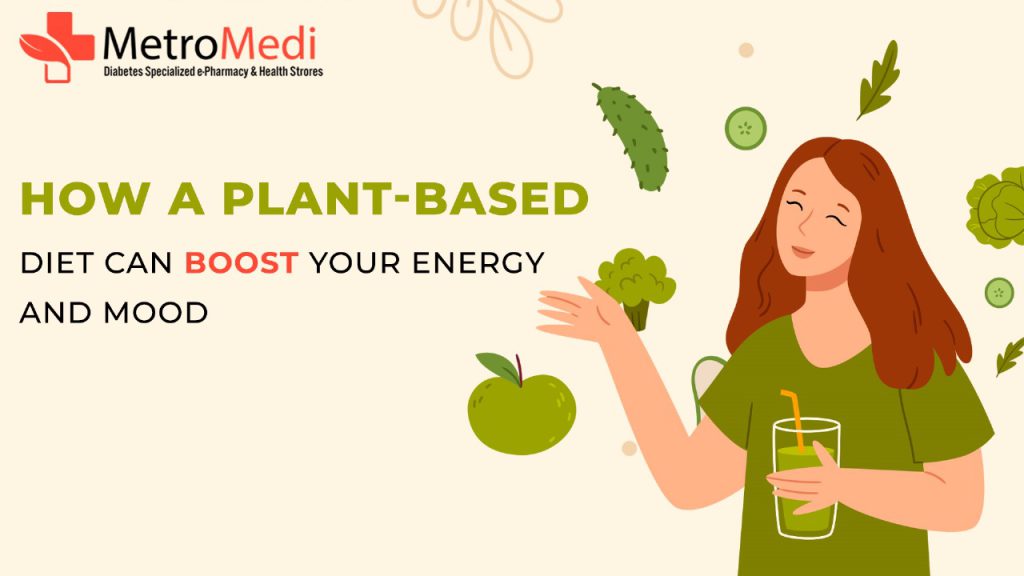
In recent years, plant-based diets have gained immense popularity, not only for their health benefits but also for their positive impact on our overall well-being. Many people are discovering that embracing a diet rich in fruits, vegetables, whole grains, legumes, nuts, and seeds can significantly enhance their energy levels and improve their mood. If you’re interested in making dietary changes, consider seeking online dietitian consultation or dietician online consultation for personalized guidance. Let’s explore how a plant-based diet can contribute to a more vibrant, energized, and positive life.
The Connection Between Food and Mood
The food we consume plays a crucial role in how we feel both physically and emotionally. Nutrient-dense foods can fuel our bodies, enhance brain function, and influence our mood. A plant-based diet is rich in vitamins, minerals, antioxidants, and fiber, all of which are essential for optimal physical and mental health. Engaging in an online diet consultation can help you tailor your plant-based meals to fit your individual needs.
1. Enhanced Nutrient Intake
Plant-based diets are packed with essential nutrients that support overall health. Key vitamins and minerals such as:
- B Vitamins: These vitamins are crucial for energy production and brain health. Foods like leafy greens, legumes, and whole grains are excellent sources of B vitamins.
- Iron: A common concern in plant-based diets, iron is vital for oxygen transport in the blood. Consuming foods like lentils, chickpeas, and quinoa can help maintain healthy iron levels.
- Magnesium: This mineral plays a role in over 300 biochemical reactions in the body, including energy production. Nuts, seeds, and leafy greens are great sources of magnesium.
2. Stabilized Blood Sugar Levels
A diet high in processed foods and refined sugars can lead to energy crashes and mood swings. On the other hand, plant-based diets focus on whole foods that are rich in fiber, helping to stabilize blood sugar levels. This steady release of energy can lead to improved focus, reduced fatigue, and a more stable mood throughout the day. Consulting with an online dietitian consultation can help you create a balanced meal plan that supports this stability.
3. Anti-Inflammatory Properties
Many plant-based foods have anti-inflammatory properties that can combat chronic inflammation in the body. Inflammation has been linked to various mood disorders, including depression and anxiety. Incorporating foods like berries, turmeric, and leafy greens can help reduce inflammation and promote a more positive outlook.
4. Gut Health and Mental Well-Being
The gut-brain connection is a well-established link between digestive health and mental health. A plant-based diet is rich in fiber, which promotes the growth of beneficial gut bacteria. A healthy gut microbiome has been associated with improved mood and cognitive function. Foods like fermented vegetables, legumes, and whole grains can support gut health and, in turn, enhance mental well-being.
5. Sustained Energy Levels
Plant-based diets are often lower in unhealthy fats and higher in complex carbohydrates, which provide a steady source of energy. Foods like brown rice, quinoa, and sweet potatoes are great for sustained energy levels. Unlike simple carbohydrates that can lead to quick spikes and crashes in energy, complex carbohydrates release energy gradually, helping you feel energized throughout the day.
6. Improved Mood and Reduced Anxiety
Numerous studies have shown that diets rich in fruits and vegetables are associated with better mental health. The antioxidants and phytonutrients found in these foods can reduce oxidative stress and inflammation in the brain, potentially lowering the risk of mood disorders. Furthermore, plant-based diets often emphasize mindfulness and intentional eating, which can enhance overall well-being and emotional resilience.
Getting Started with a Plant-Based Diet
If you’re considering adopting a plant-based diet to boost your energy and mood, here are some tips to get started:
- Start Slowly: Transitioning to a plant-based diet doesn’t have to be an all-or-nothing approach. Start by incorporating more plant-based meals into your week and gradually increase your intake.
- Experiment with Recipes: Explore different cuisines and recipes that highlight plant-based ingredients. This can keep your meals exciting and prevent monotony.
- Focus on Variety: Include a wide range of fruits, vegetables, whole grains, nuts, and seeds in your diet to ensure you’re getting a broad spectrum of nutrients.
- Listen to Your Body: Pay attention to how different foods affect your energy and mood. Everyone’s body is different, so it’s important to find what works best for you.
Conclusion
Embracing a plant-based diet can be a transformative journey for both your body and mind. By prioritizing nutrient-dense foods, stabilizing blood sugar levels, reducing inflammation, and nurturing gut health, you can experience enhanced energy levels and improved mood. If you need guidance on your journey, consider seeking online dietitian consultation or online dietitian consultation for expert advice. As you explore the vibrant world of plant-based eating, you’ll not only nourish your body but also cultivate a positive and energized mindset. Whether you’re looking to improve your physical health, boost your mood, or simply try something new, a plant-based diet may be the perfect solution.
